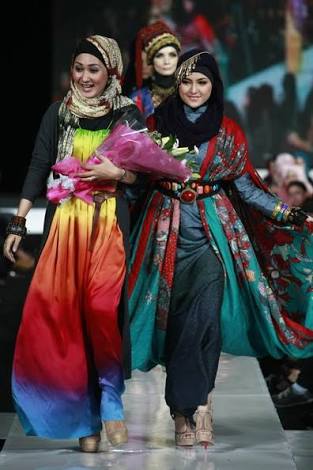Lack of innovation in Halal fashion market is lamentable. With the growing Islamic population in the world, demand for consumer products that fit for the faith of Muslims is also increasing.
In the West, London leads Europe’s Islamic economy activity, with a number of start-ups launched every month in the sought-after segments of modest fashion and premium halal food as well as halal cosmetics.
“Even though you have more Muslims living in Germany and France than you do in the UK, in those countries Muslims are a little bit disenfranchised,” says Haroon Latif, the director of strategic insights at the US research firm Dinar Standard, including that “In the UK they are very much empowered and it’s very encouraging to see that.
Mr Latif also added that that is the thing you need to spark a market; you need people having a voice, who have well fitted into the society, they feel part of the British identity & are also Muslim.
Must Read: Pakistan Dairy Associations Recommendations to the PM
The report that was published on December 4, says that the global halal food and beverage (F&B) market is ready to boom in the next five years, driven by new entrants to the market. The sector is hoped to grow from US$1.24 trillion in 2016 to reach $1.93 trillion by 2022.
By category F&B leads Muslim spend, followed by clothing and apparel at $254 billion, media & entertainment at $198 billion, travel at $169 billion, and pharmaceuticals & cosmetics at $83bn and $57.4 billion.
Speaking at the World Halal Day event in London last month, Shelina Janmohamed, the vice president of Ogilvy Noor; the author of Generation M: Muslims Changing the World & a columnist for The National, said the internet has changed the Muslim market and is shaping what it means to be Muslim.
Ms Janmohamed elaborated on the concept of Generation M – a term for millennial Muslims that has been coined in her latest book – by emphasising that faith and modern life go hand-in-hand for this increasing consumer segment in the UK and globally. She says that they think faith can be supported by a modern lifestyle.
She also added that they have a desire to live a good life, with pious mind, body and spirit.
The bigger brands according to her, are starting to reach out to the Muslim audience and there is a wave of collective Muslim consumer power. She noted that a lot of other consumer movements are aligned with the boom in halal sector, and it includes organic and vegan segments, having similar values in terms of provenance and purity.
As per the words of Ms Janmohamed the UK has progressed faster than other countries in terms of the Islamic economy and Europe requires to catch up and partly that is a political issue.
The potential for halal is higher than that of any other brand in the world. At present, there is a lot of tension around it.
Still, for western companies is a fear that they say wrong thing to Muslims – they do not want to offend them and secondly they will get a backlash.
Romanna bint Abu Baker, being a British Muslim entrepreneur and the founder of modest fashion marketplace Haute-elan.com, said the UK Muslim is also being held back by lack of product innovation. There is a lack of story and too many “me-too” launches. There is a failure to address the consumer problems, we require to think harder and need to think more creatively.
Mr Latif opines that London-grown companies have a ‘long runway’ and they deserve billion-dollar companies in the halal food industry but the question is who gets there 1st? There might be a little bit of a race between the UK and the US.




